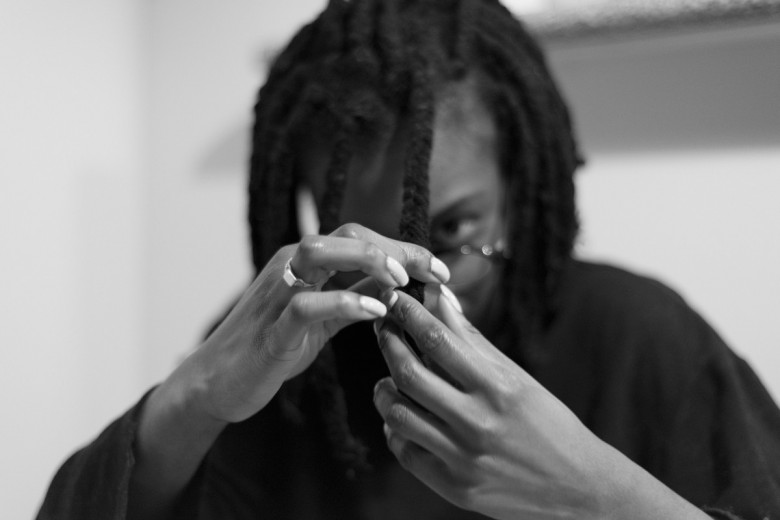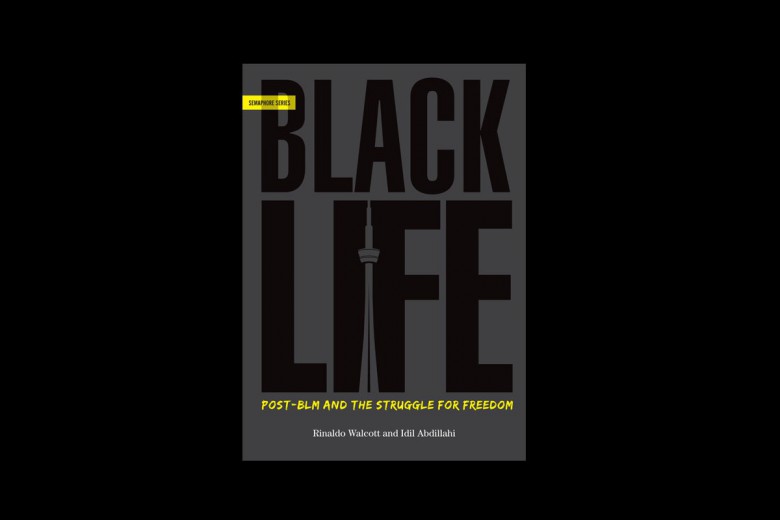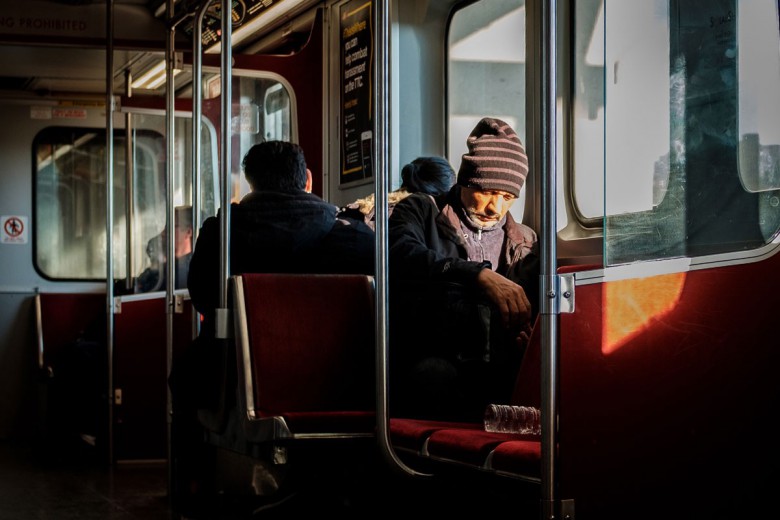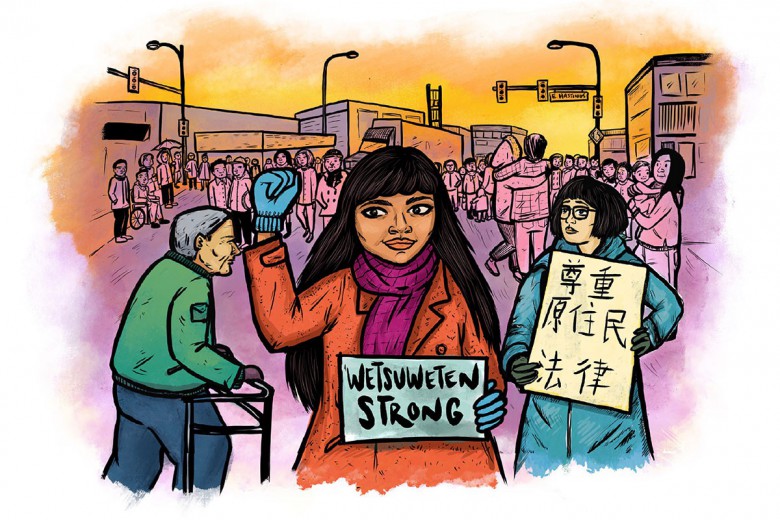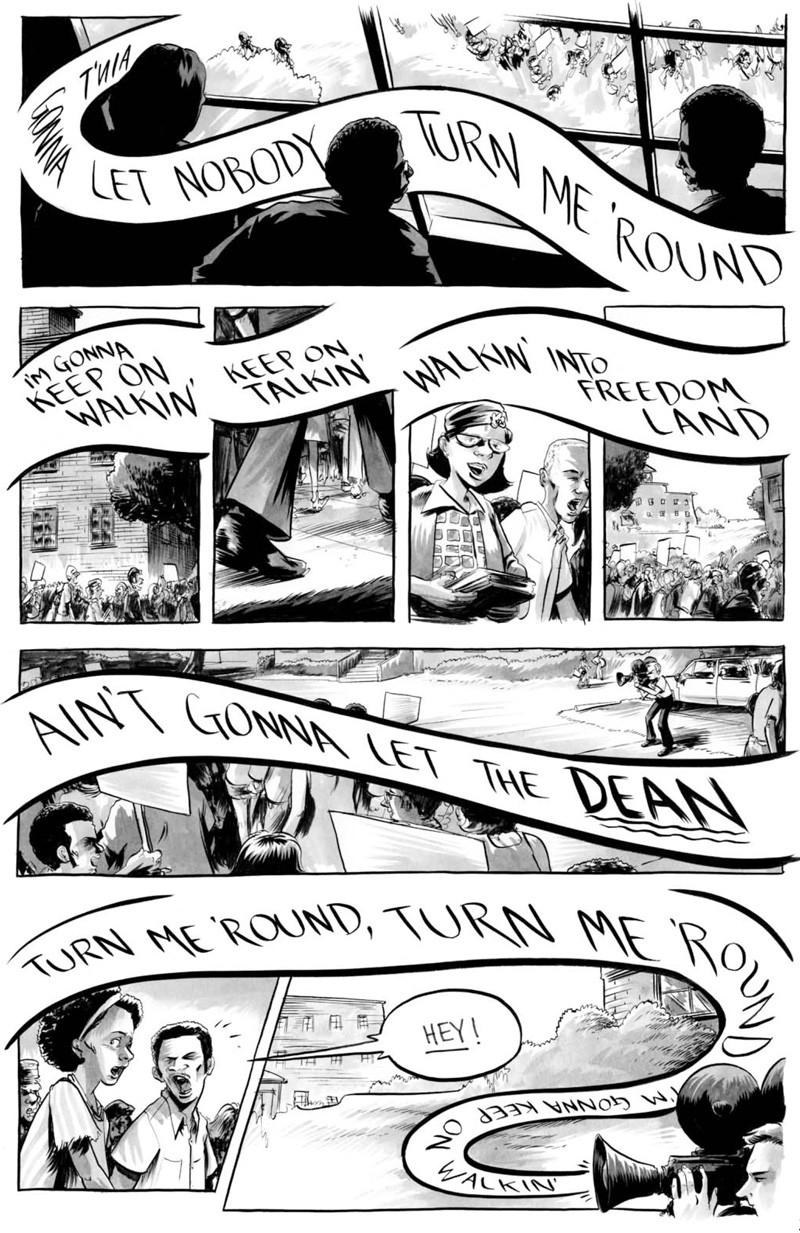
By 1968, the civil rights movement was well underway in cities across the United States. But despite the sustained organizing efforts of black activists and their allies, progress was slow. In the racially divided city of Houston, Texas, black communities continued to face regular violence and institutionalized discrimination. The Ku Klux Klan promoted hate rallies door to door, white children repeated the racist slurs spoken by their elders, and many whites viewed small gestures of cross-racial friendship as unforgivable transgressions.
The Silence of Our Friends by Mark Long, Jim Demonakos, and Nate Powell reflects on a brief moment during those tumultuous times. Mining his childhood memories, Long has written a work of graphic fiction that resonates with the honesty of memoir, refusing to sugar-coat the past.
The story is centred on Long’s father, Jack, and his family. While covering a Student Nonviolent Coordinating Committee rally as a TV reporter, Jack meets Larry Thompson, a fictional character based on the real-life Larry Thomas, a black anti-poverty activist from Houston’s Fifth Ward. They strike up a tentative friendship that eventually brings their families together.
When racist whites run down Larry’s daughter, he organizes a community protest. The march is attacked by the police, and in the melee, two officers are shot – one fatally.
Five black students are charged with manslaughter, and Jack holds key evidence that could save them. Thankfully, Long avoids the racist narrative of a noble white saviour that plagues many stories set in the same era. Jack falters at several points, and finally, Larry presses Jack to speak the truth.
The visual storytelling of Nate Powell, whose 2008 graphic novel Swallow Me Whole won an Eisner Award for Best New Graphic Novel, continues to shine. His pencil work is exuberant, striking the perfect balance between cartooning and realism. Powell makes brilliant use of a limited grey-scale colour palette and thoughtful layout choices to bring a stunning depth of feeling to the small but revelatory moments in the characters’ lives. When Larry lashes out at his son Daniel after being refused service at a white-owned gas station, and when Mark Long and his sister Michelle are left out of a game of catch by an epithet-spouting neighbourhood boy, their faces seem to swirl with a storm of emotions moving just beneath their skin.
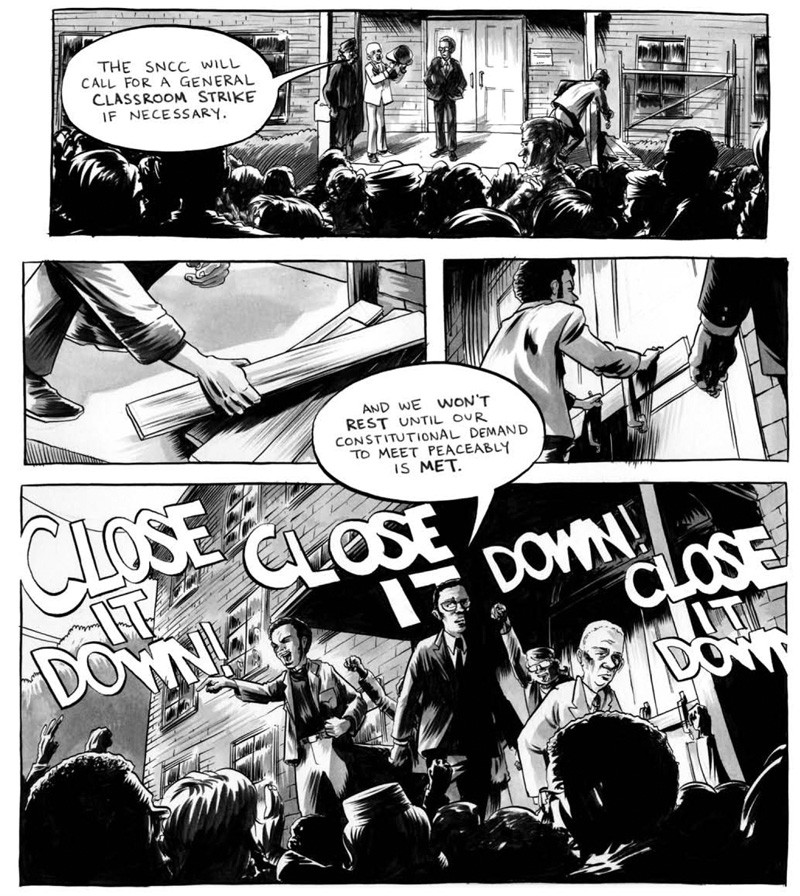
The book falls short of addressing many of the key political discussions occurring in the movement at the time. Black Power is not adequately explained, and the relationship between racism, imperialism, and capitalism is never considered. The failure of the authors to mention the well-documented FBI COINTELPRO program, which attempted to systematically discredit and destroy black liberation movements, leaves readers lacking the contextual information necessary to understand the police violence and trial.
What The Silence of Our Friends does well is ask important questions. How are racist attitudes internalized or rejected by children? What does it take to earn the trust of others across boundary lines marked by race privilege? And, how can we make progress in the struggle against oppression?
The graphic novel ends with what can only be understood as a call to action in the form of a quote by Martin Luther King Jr.: “In the end, we will remember not the words of our enemies, but the silence of our friends.” The book’s power arises from the disparate and delicate moments in the lives of its characters, woven together like voices in a choir, reminding us that, while never easy, solidarity begins with a refusal to be silent when others are oppressed.


